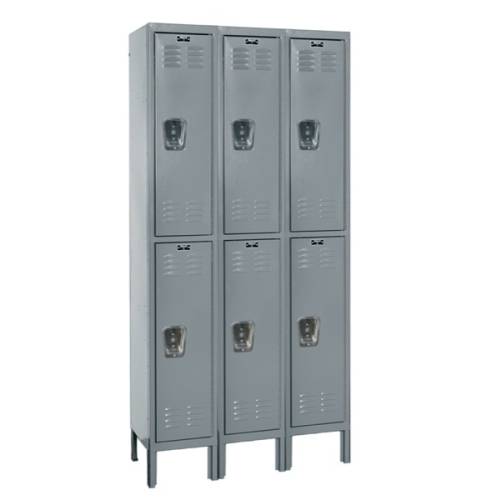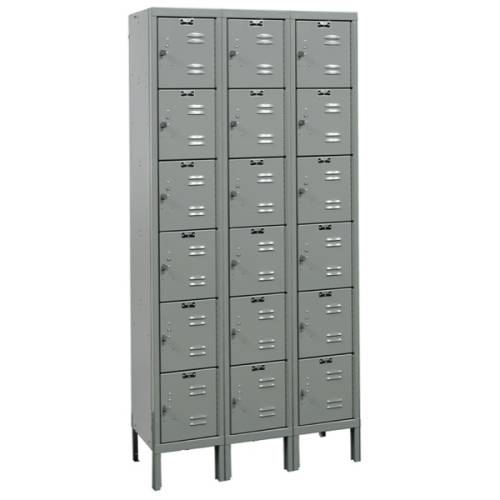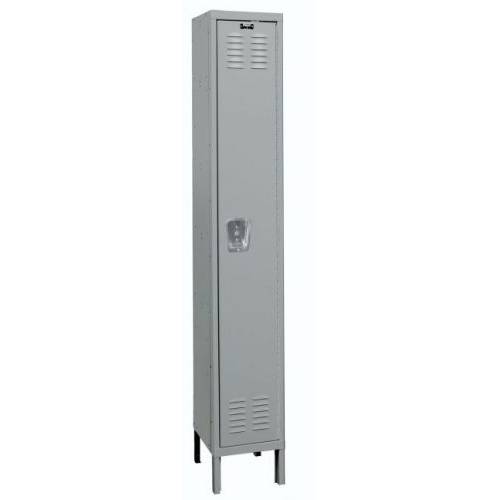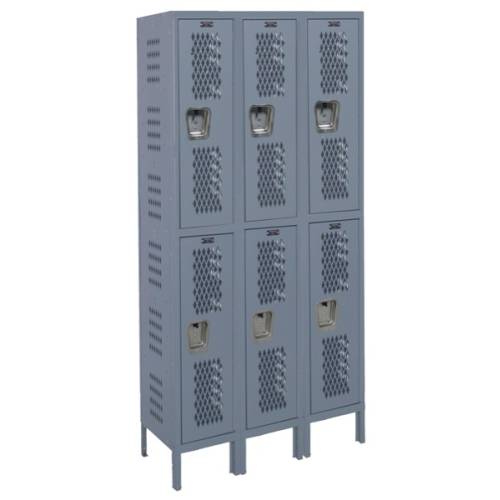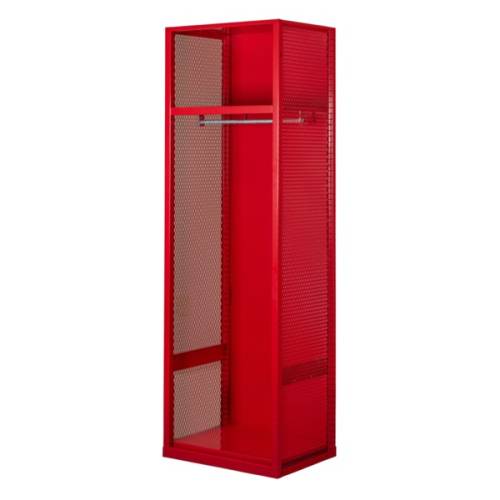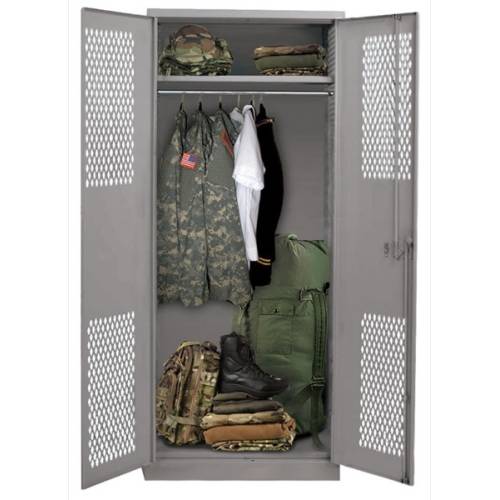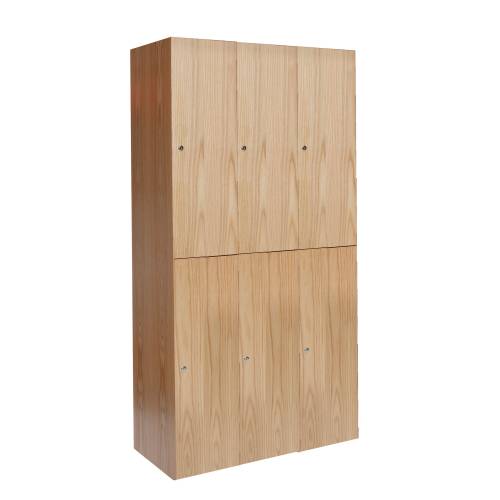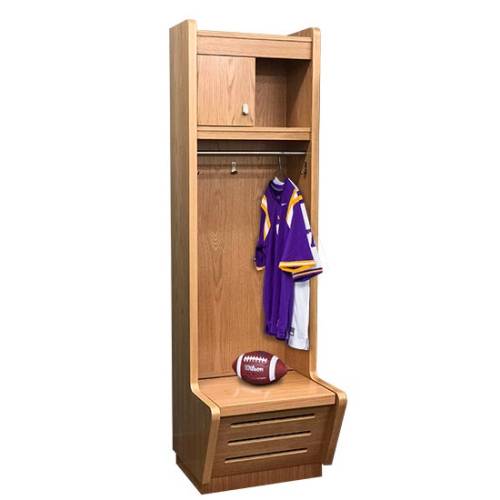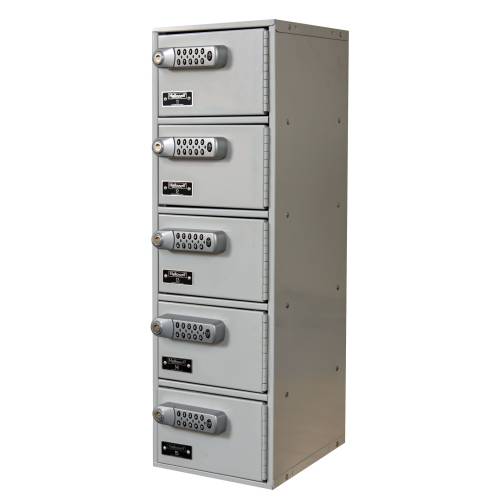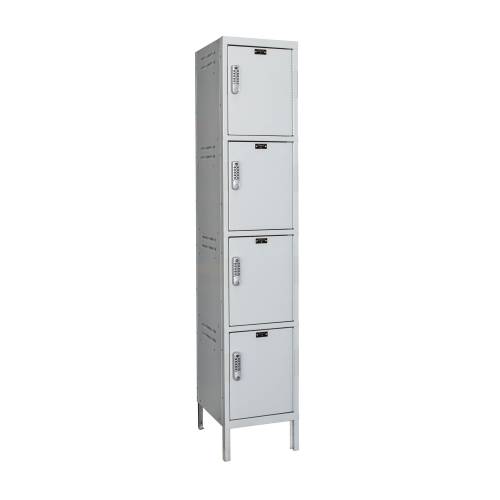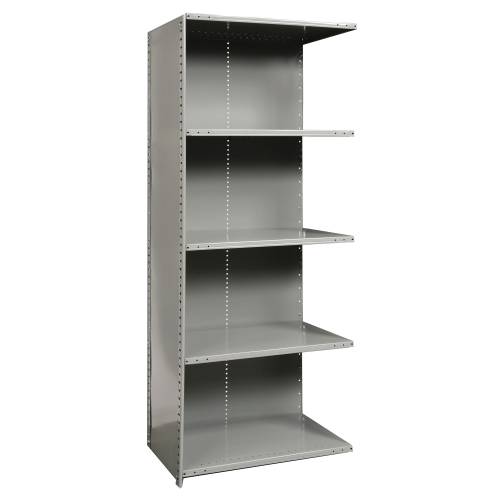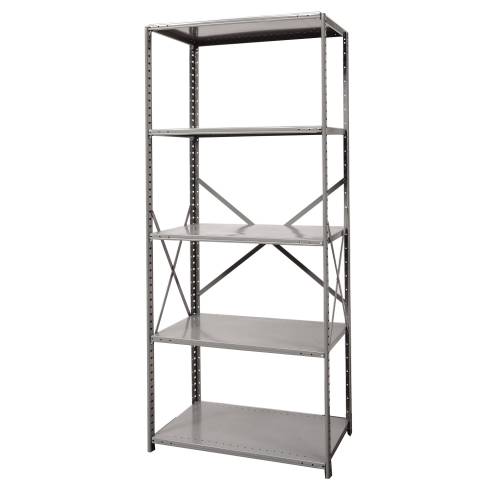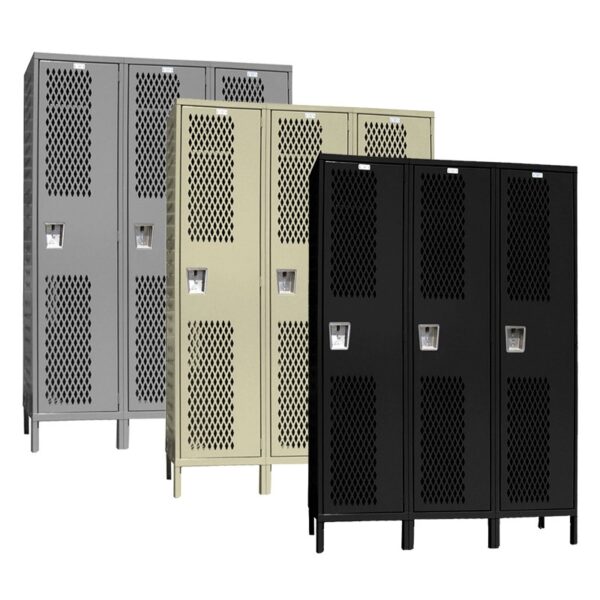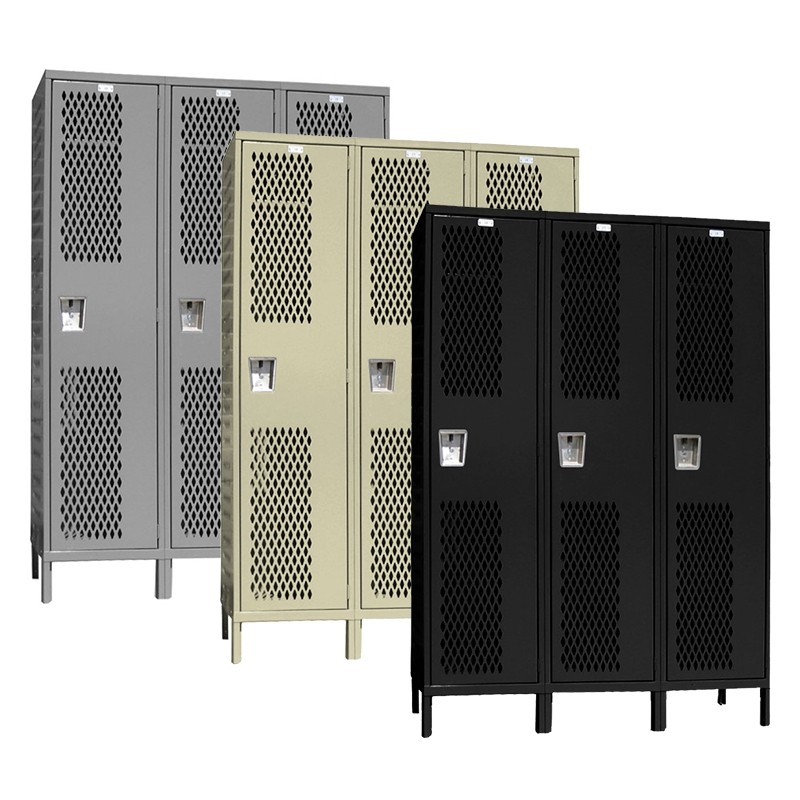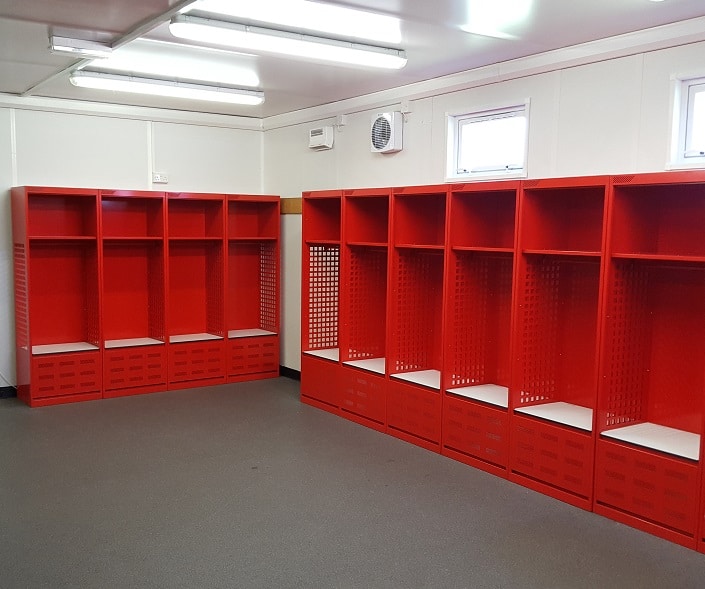Lockers come in various designs, sizes, and materials to accommodate different storage needs and settings. Among the types of lockers available, heavy-duty and regular lockers are two main categories. The gauge of steel often differentiates them, as well as their overall strength and durability.
The main difference between heavy-duty lockers and regular lockers is the thickness of the steel used to construct them. Heavy-duty lockers are made from thicker steel, which makes them stronger and more durable. Regular lockers are made from thinner steel, which makes them less expensive but also less durable.
1. Heavy Duty Lockers:
- Material and Gauge: Typically constructed with thicker steel, which can be identified by a lower gauge number. A 12-gauge or 14-gauge steel might be used for heavy-duty lockers. The smaller the gauge number, the thicker the metal.
- Durability: Built to withstand rough use, which is often seen in environments such as schools, gyms, or industrial settings. These lockers resist dents, scratches, and other forms of wear and tear better than their regular counterparts.
- Security: Because of their robust construction, heavy-duty lockers tend to be more secure. The thicker steel makes them more resistant to tampering or break-ins.
- Cost: They are more expensive than regular lockers due to the thicker material used and the added manufacturing processes needed for their construction.
2. Regular Lockers:
- Material and Gauge: Regular lockers might be constructed from thinner steel, such as 16-gauge or 18-gauge. This makes them lighter and potentially less durable than the heavy-duty options.
- Durability: Suitable for environments where they are not subject to constant or rough use. Regular lockers can be found in office settings or places with lighter traffic.
- Security: They provide a basic level of security but might be more prone to tampering due to the thinner material.
- Cost: Generally, regular lockers are more affordable than heavy-duty lockers.
Gauge Steel Differences:
Steel gauge refers to the thickness of the sheet metal. The lower the gauge number, the thicker the metal. Here’s a basic rundown:
- 12-gauge: 0.1046 inches thick
- 14-gauge: 0.0747 inches thick
- 16-gauge: 0.0598 inches thick
- 18-gauge: 0.0478 inches thick
In the context of lockers:
- Thicker steel (lower gauge) means more durability, higher weight, and often, higher cost.
- Thinner steel (higher gauge) is lighter and more economical but may not offer the same level of durability or resistance to damage.
Here are some of the factors to consider when choosing between heavy-duty lockers and regular lockers:
- The intended use of the lockers. Heavy-duty lockers are best suited for environments where the lockers will be subjected to a lot of wear and tear, such as industrial and commercial settings. Regular lockers are a good option for residential and light-duty commercial settings.
- The budget. Heavy-duty lockers are more expensive than regular lockers.
- The desired level of security. Heavy-duty lockers are more secure than regular lockers.
If you need a durable and secure locker for a high-traffic or industrial setting, then a heavy-duty locker is the best option for you. If you are looking for a less expensive locker for a residential or light-duty commercial setting, then a regular locker is a good option.
Here are some additional things to keep in mind when choosing lockers:
- The size of the lockers. Make sure the lockers are the right size to accommodate your needs.
- The number of lockers. How many lockers do you need?
- The features of the lockers. Do you need lockers with shelves, hooks, or other features?
- The finish of the lockers. Do you want a painted or powder-coated finish?
- The warranty. How long is the warranty on the lockers?
When choosing between heavy-duty and regular lockers, it’s crucial to consider the environment they will be placed in, the type of items to be stored, and the expected frequency of use. For high-traffic areas or places with potential rough handling, heavy-duty lockers are a more suitable choice. On the other hand, for lighter usage scenarios, regular lockers might suffice.

